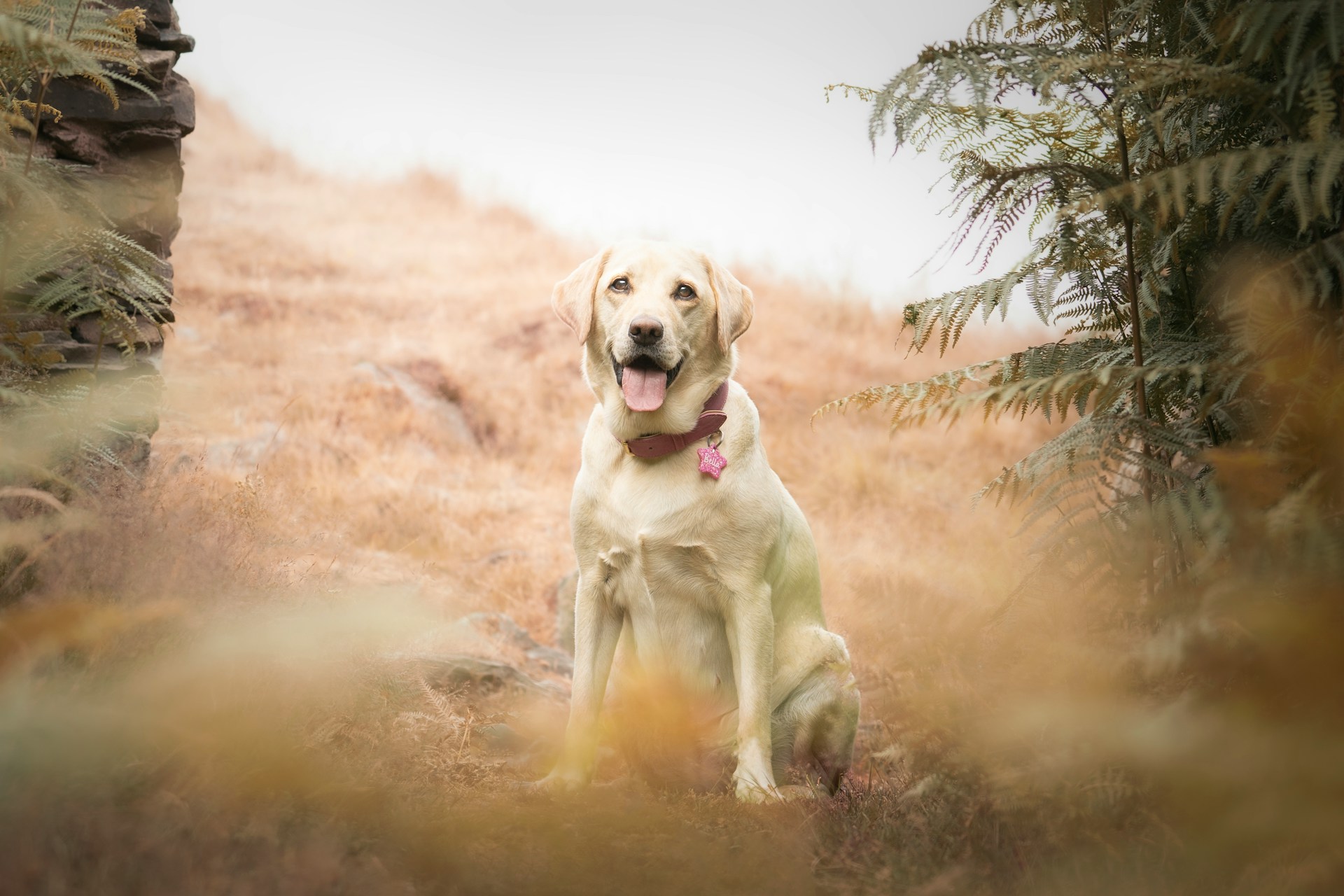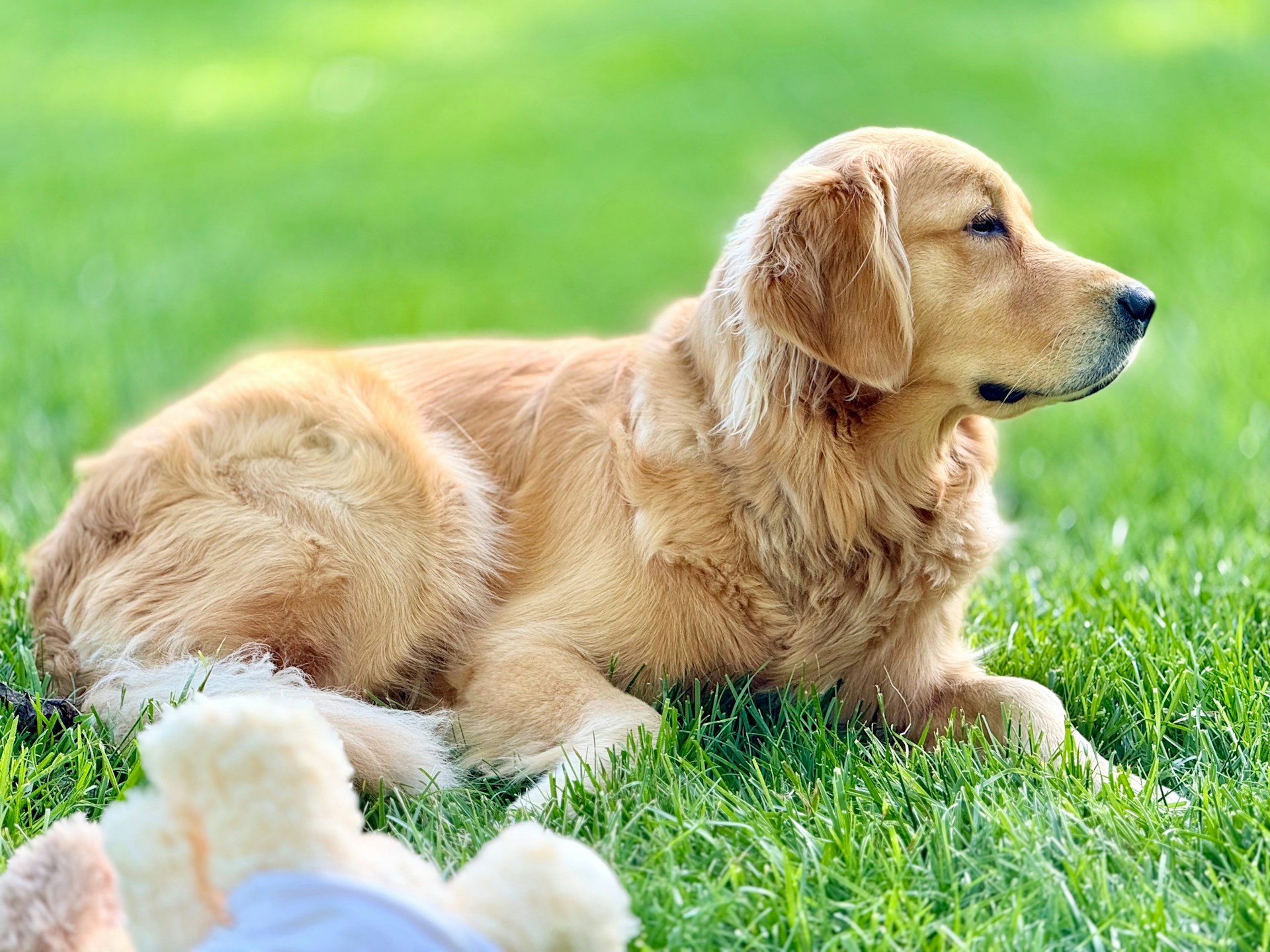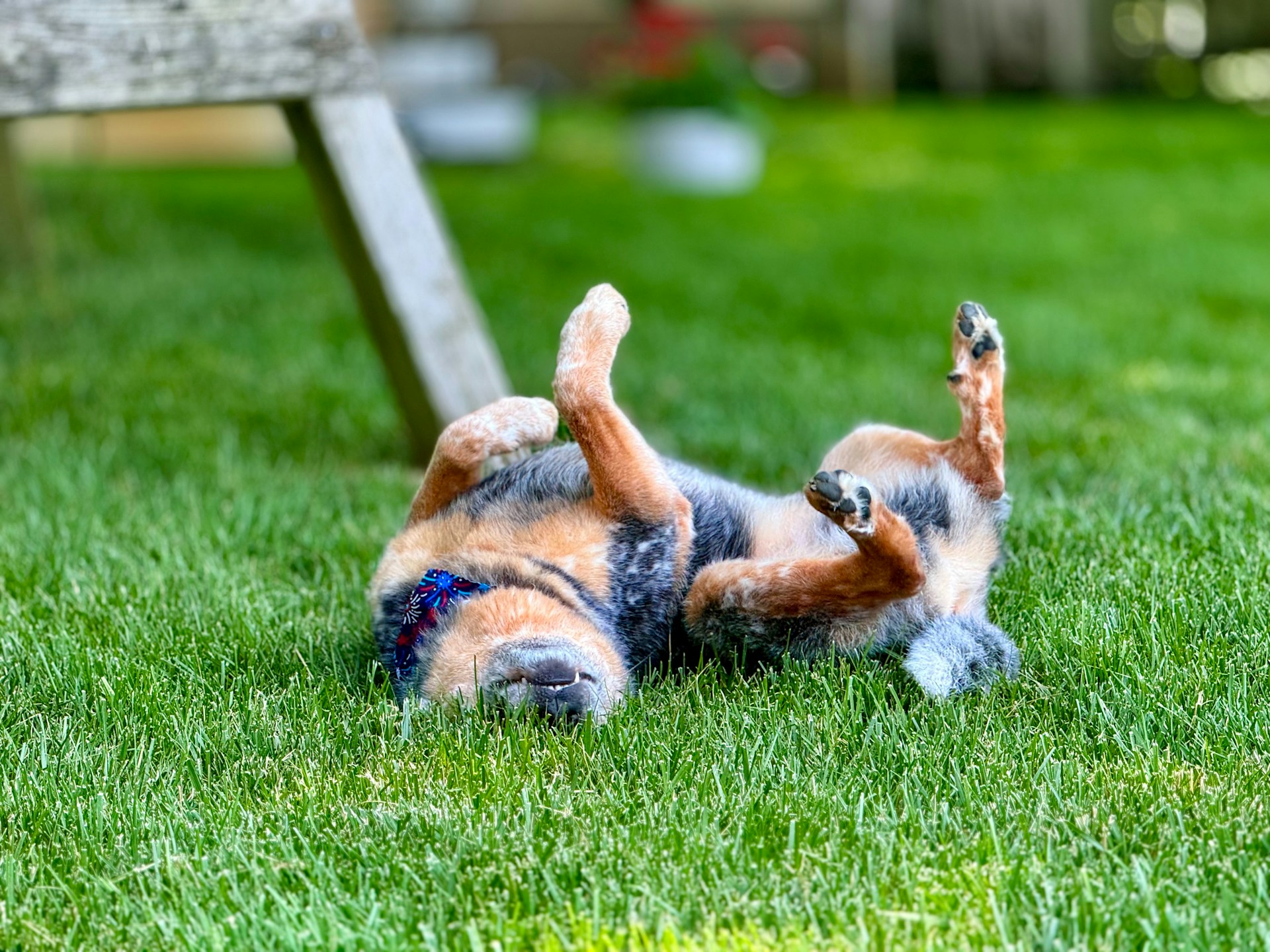Reactive Dog Regression: Why It's Normal and How to Handle Training Setbacks
If you've been on the reactive dog journey for any length of time, you know the drill: one week, your pup is a perfect little angel during loose-leash walks and barely glancing at that stranger across the street. The next? They're back to barking, lunging, and pulling like it's day one.
Sound familiar?
I've been there with my own reactive dog more times than I can count. Some days I'm gushing to my partner and friends about how much progress she has made and then other days I'm tearing up in frustration. Those moments of reactive dog regression can feel crushing -- like all your hard work has vanished overnight.
The truth is that regression in reactive dog training isn't a failure.
It's a normal part of the process.
Training reactive dogs isn't a straight line. It's more like a winding path with detours, hills, and the occasional pothole. If you're feeling frustrated, know you're not alone, and there are ways to turn these setbacks into stepping stones.

What is Reactive Dog Regression?
Reactive dog regression refers to a temporary step backward in your dog's behaviour after periods of progress. One day, they're calmly passing other dogs on walks and then the next, they're reacting intensely to the same triggers. This isn't your dog "forgetting" their training. It's often a sign that something has shifted in their emotional or physical state.
For reactive dogs, whose behaviours stem from fear, anxiety, or overstimulation, regression can show up in various ways. It might be increased barking at strangers, more lunging toward other dogs, or even hiding and avoiding situations they previously handled well.
The key thing to remember? Regression doesn't erase progress. It's just a pause or detour in the non-linear journey of reactive dog training.
Understanding this helps manage expectations. Unlike basic obedience training (like teaching "sit" or "stay"), reactivity involves deep emotional work.
Emotions fluctuate, and so does behaviour. If you're new to this, check out our guide on helping reactive dogs build confidence for more on the emotional side of training.

Why Does Regression Happen in Reactive Dog Training?
Regression in dog training doesn't come out of nowhere. There are usually underlying reasons, and identifying them can help you address the issue head-on. Here are some common causes of reactive dog regression:
- Stressful Events or Changes
A move to a new home, a new family member (human or furry), or even a vet visit can spike your dog's anxiety levels. Reactive dogs are sensitive souls, and big changes can trigger a regression as they adjust.
- Physical Health Issues
Pain from an injury, digestive upset, or even something subtle like an ear infection can make your dog more irritable and reactive. Always rule out medical causes with a vet check-up if regression seems sudden.
- Overexposure to Triggers
Pushing too hard in training can sometimes cause regression, such as exposing your dog to too many triggers too soon leading to overwhelm. This is common in desensitisation work, where gradual exposure is key.
- Adolescence or Maturing
Puppies and young dogs often hit a "teenage phase" around 6-18 months where hormones surge, leading to temporary regressions. Even adult dogs can experience this during life stages like aging.
- Lack of Consistency
If training routines slip due to busy schedules or bad weather, skills can fade. Reactive dogs thrive on predictability, so inconsistencies can cause setbacks.
- Negative Experiences
A single bad encounter, like an off-leash dog charging at yours, can undo weeks of progress. It's frustrating, but it's a reminder of why management tools like muzzles for reactive dogs are so valuable.
Recognising these factors takes the blame off you and your dog. It's not about "failing", it's about real life getting in the way. For more on handling specific triggers, our post on the "1-2-3" game for reactive dogs shares a simple tool that helped us during regressions.

Signs of Regression in Your Reactive Dog
Spotting regression early can help you intervene before it escalates. Keep an eye out for these common indicators:
- Increased Reactivity: More frequent or intense reactions to known triggers, like barking at dogs from farther away than usual.
- Avoidance Behaviours: Your dog might start hiding, refusing walks, or showing signs of shutdown (e.g., freezing or turning away).
- Physical Cues: Panting, whining, lip-licking, or yawning more often. These are stress signals that something's off.
- Loss of Focus: Difficulty responding to cues they previously nailed, like "look at me" or "leave it."
- General Anxiety: Changes in appetite, sleep, or playfulness can signal underlying stress contributing to regression.
Tracking these in a journal can be eye-opening. Note what happened before the setback. For example, was it a noisy construction day or a skipped training session? This data helps tailor your response.

How to Handle Reactive Dog Regression: Practical Tips
The good news? Regression is temporary if handled with patience and strategy. Here's a step-by-step guide to getting back on track:
- Go Back to Basics
Strip things down. If your dog is regressing on walks, start with short, low-trigger sessions in your garden or a quiet area. Rebuild confidence with simple games and positive reinforcement.
- Tighten Management
Avoid triggers temporarily to prevent rehearsals of reactive behaviour. Use tools like a well-fitted muzzle or a "give me space" vest to create buffer zones. Our detailed guide on muzzles for reactive dogs can help you choose the right one.
- Lower Stress Levels
Incorporate relaxation activities like sniff walks, puzzle toys, or massage. Reduce overall arousal with shorter play sessions and more downtime.
- Reassess and Adjust Training
Review your plan. Maybe incorporate classical conditioning to rebuild positive associations (as discussed in our emotions-first training post). If needed, consult a behaviourist.
- Monitor Health and Medication
If regression persists, a vet visit is essential. For severe cases, options like Reconcile (Fluoxetine) for reactive dogs might help stabilise emotions.
- Celebrate Small Wins
Focus on progress, not perfection. Did your dog glance at a trigger without reacting? That's huge! Reward yourself too. Training reactive dogs is hard work.
Remember, non-linear progress is the norm.

Staying Motivated During Setbacks
It's easy to feel defeated during regression, but mindset matters. Here's a quick table to reframe your thinking:
Sharing stories helps too. With Jess, a bad encounter with an off-leash dog set us back months.
But by going back to basics and choosing to go out during quieter times, and also using a muzzle at all times, she's rebounded extremely well. The trick is to remember that you're both (you and your dog) are building resilience together.
Conclusion
Reactive dog regression is frustrating, but it's a sign you're in the thick of real, meaningful work.
Embrace the non-linear nature of training, be kind to yourself and your pup, and remember: setbacks are setups for comebacks.
With patience, the right tools, and a focus on emotions, you'll see progress again. If medication might help bridge the gap, explore our post on Reconcile for Reactive Dogs.



